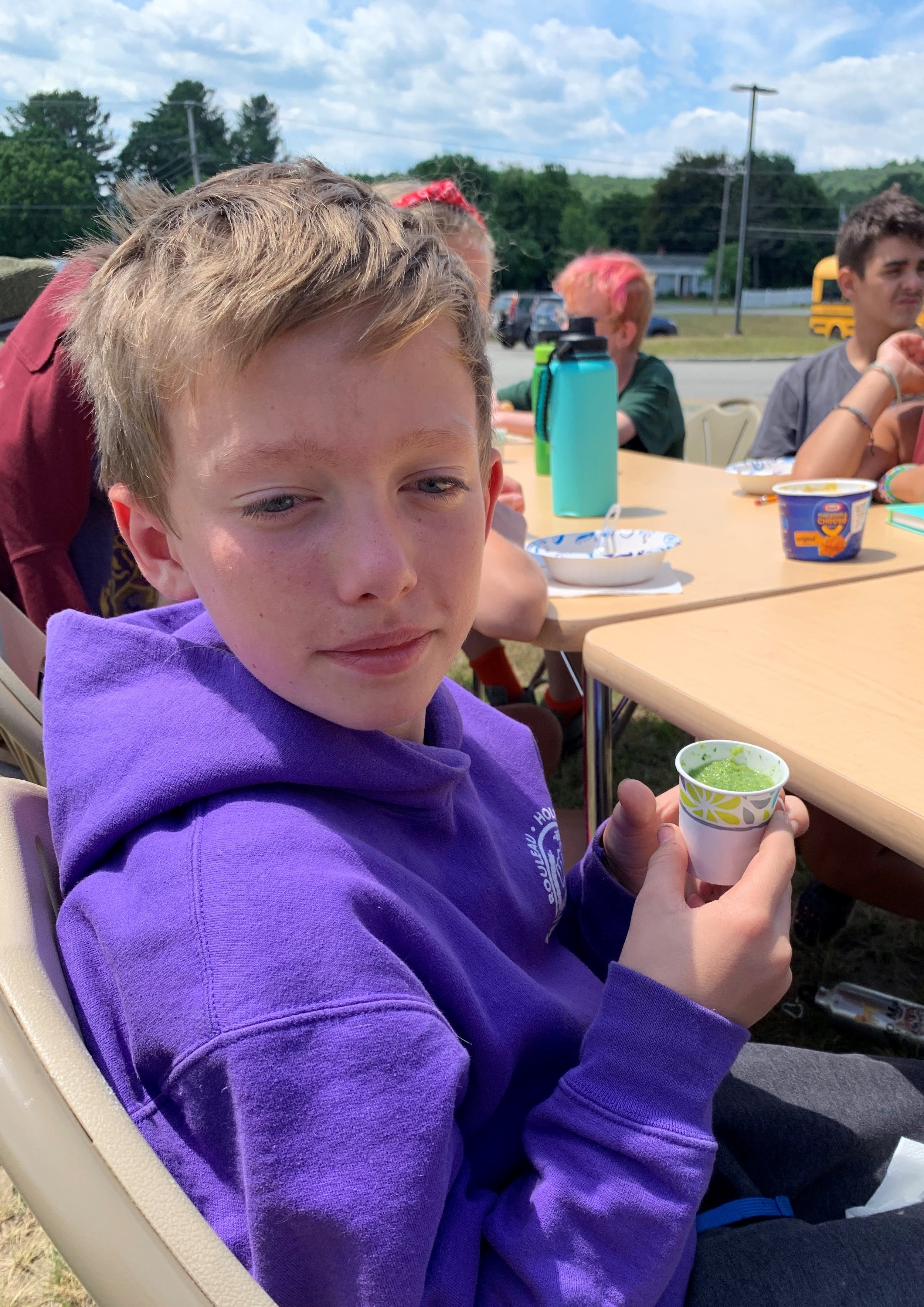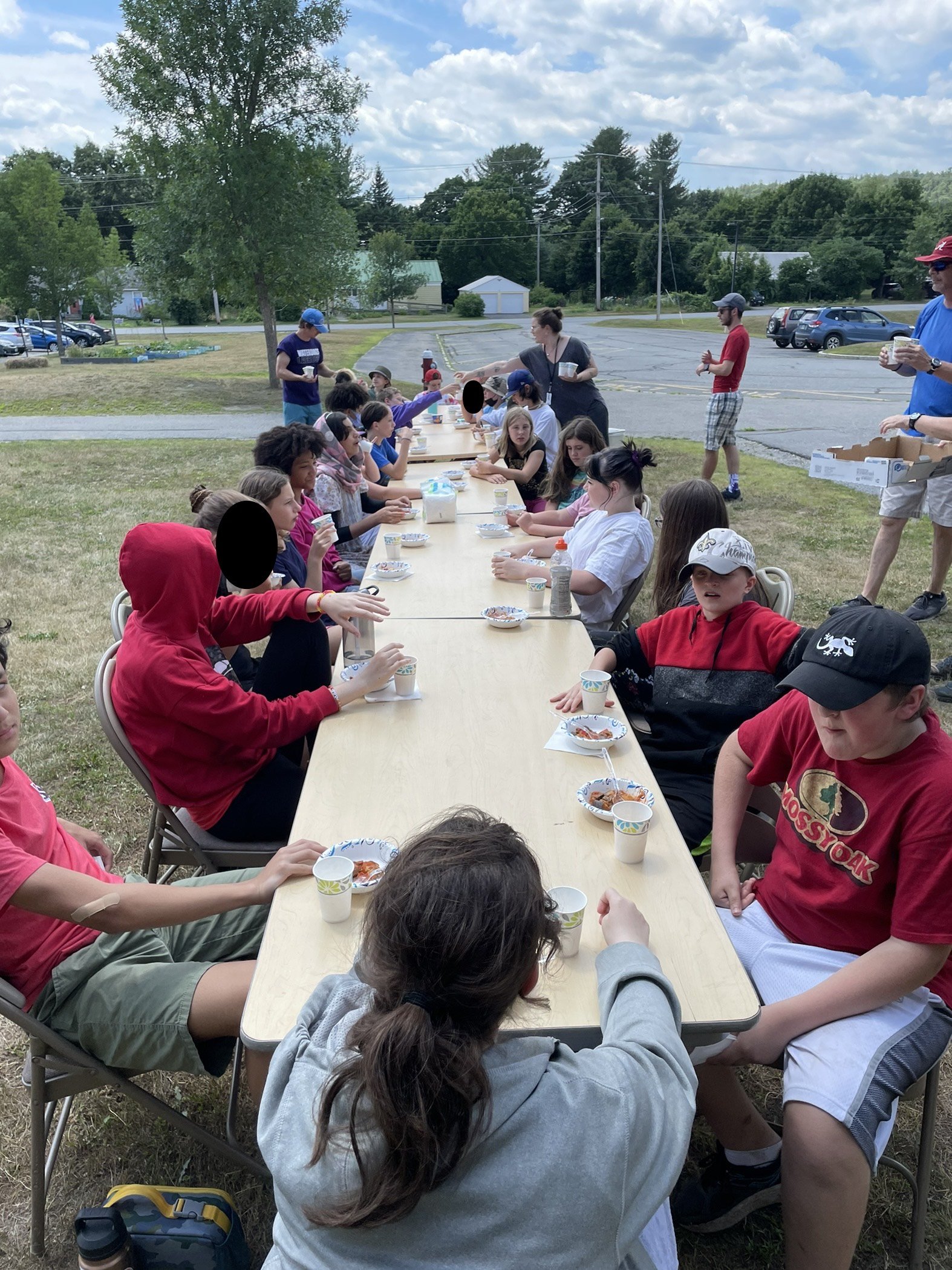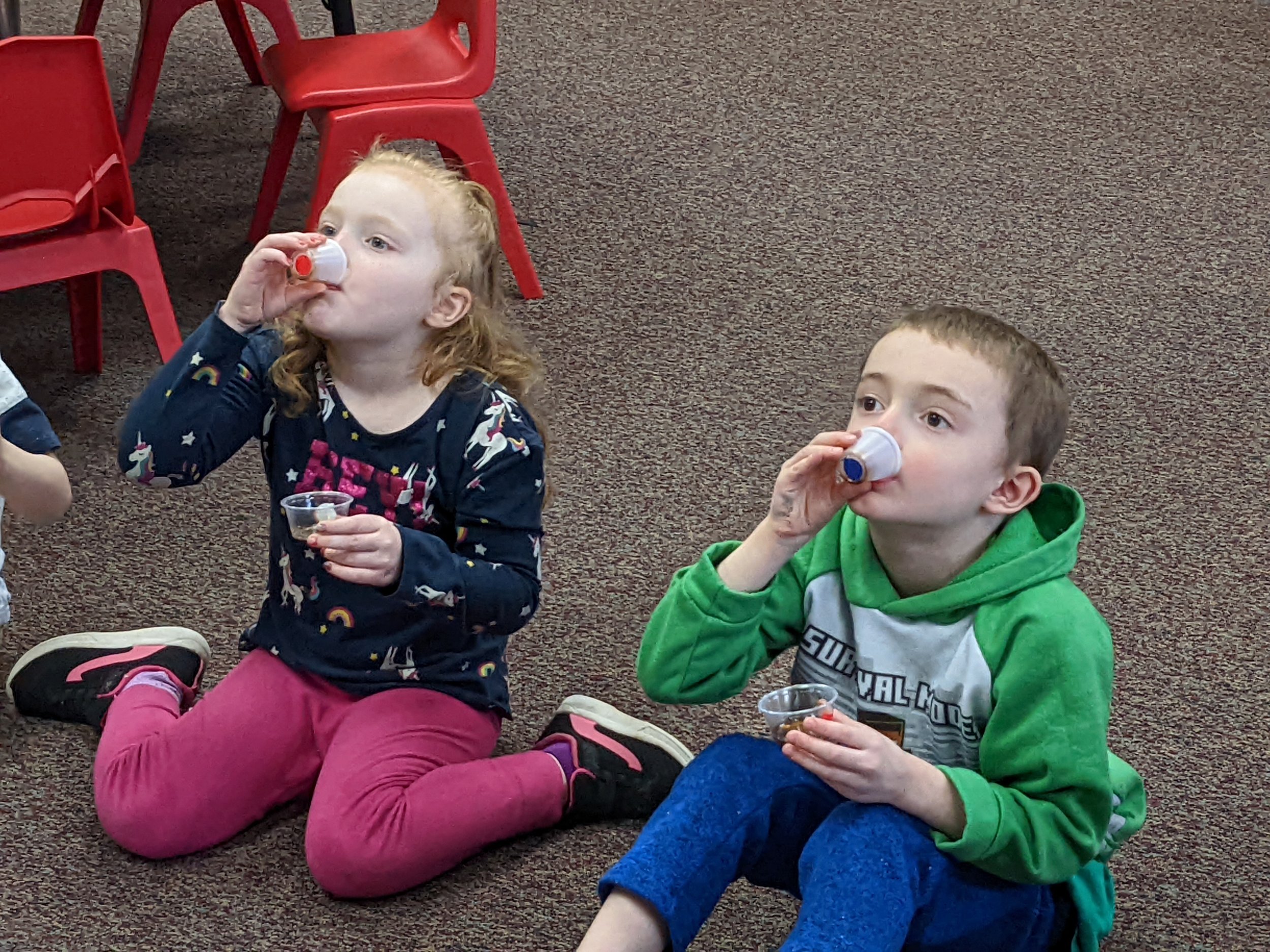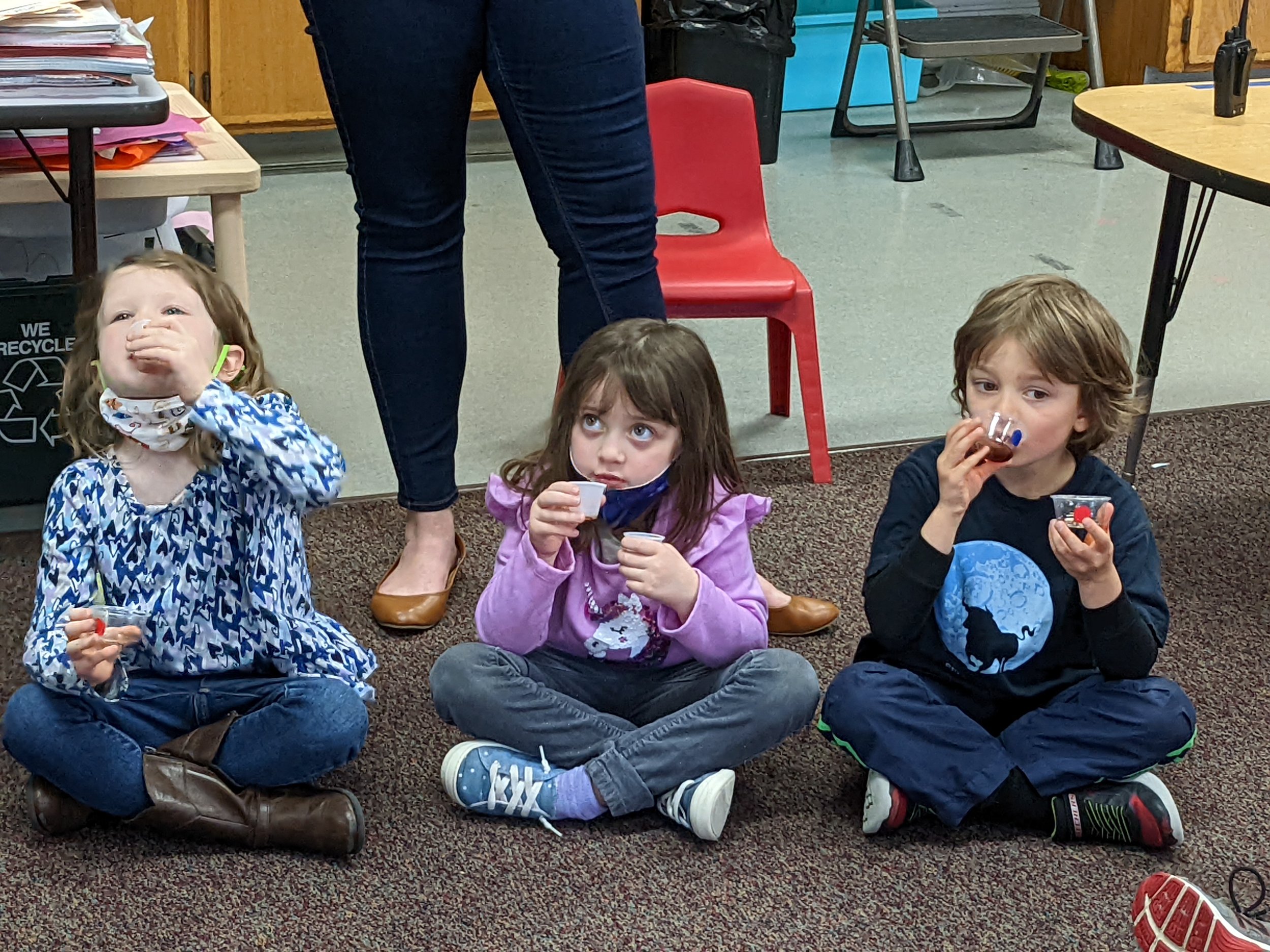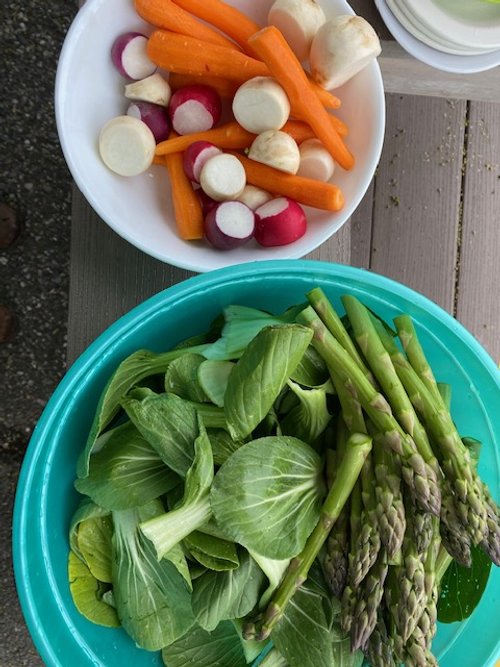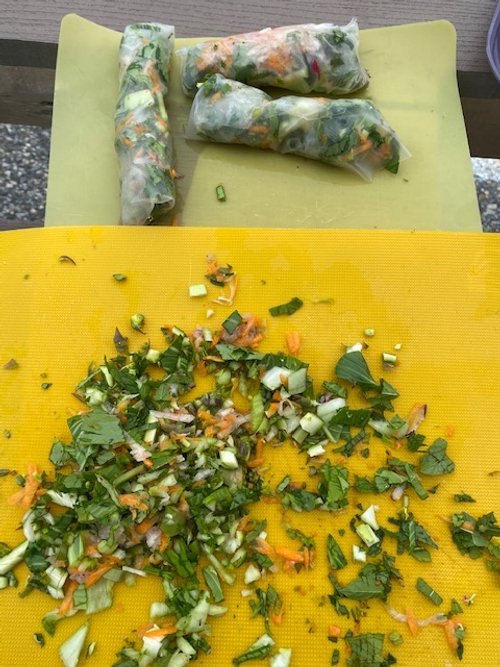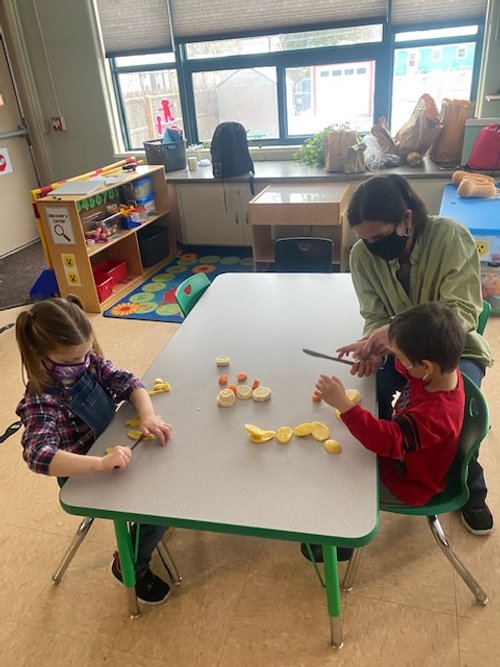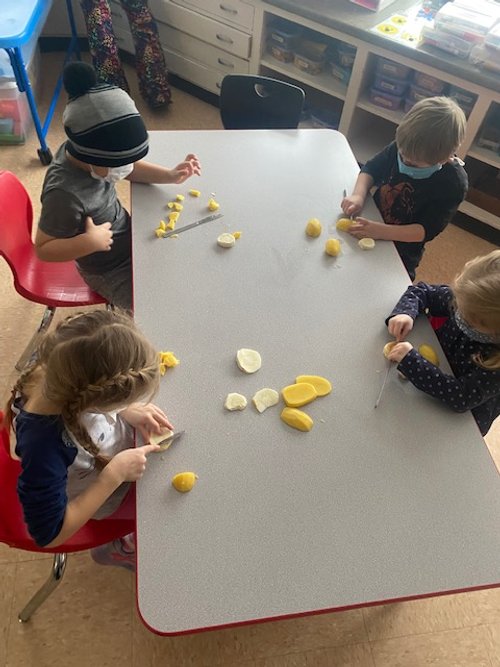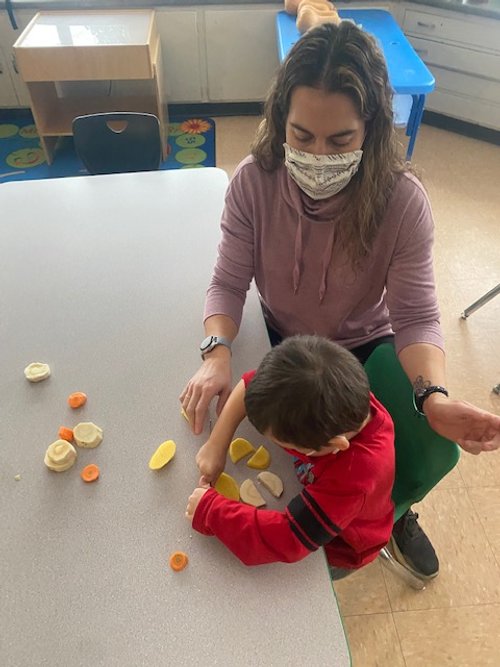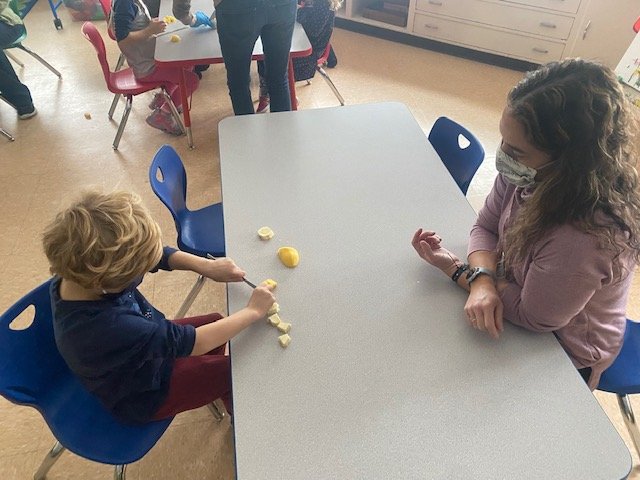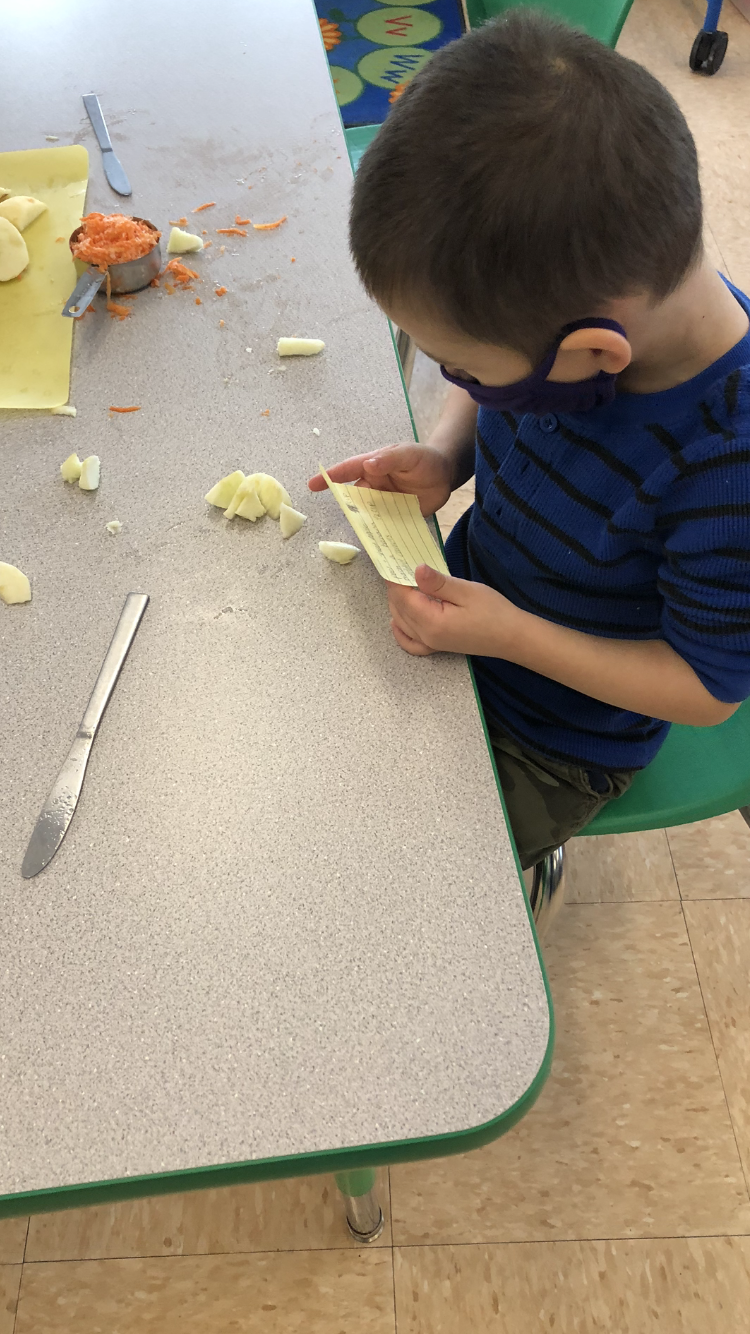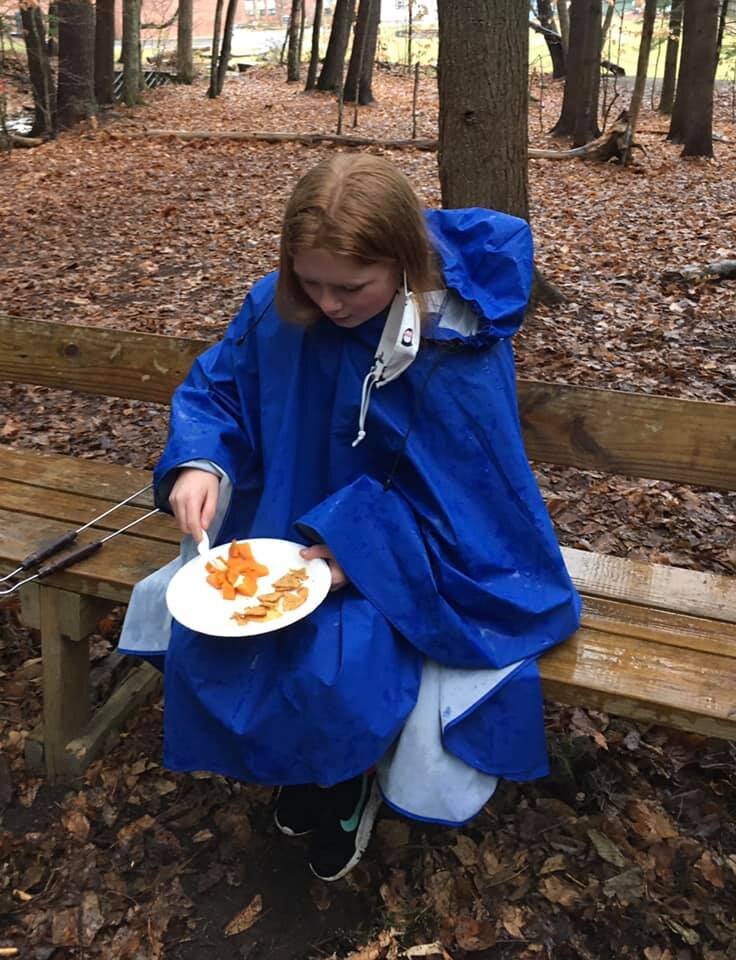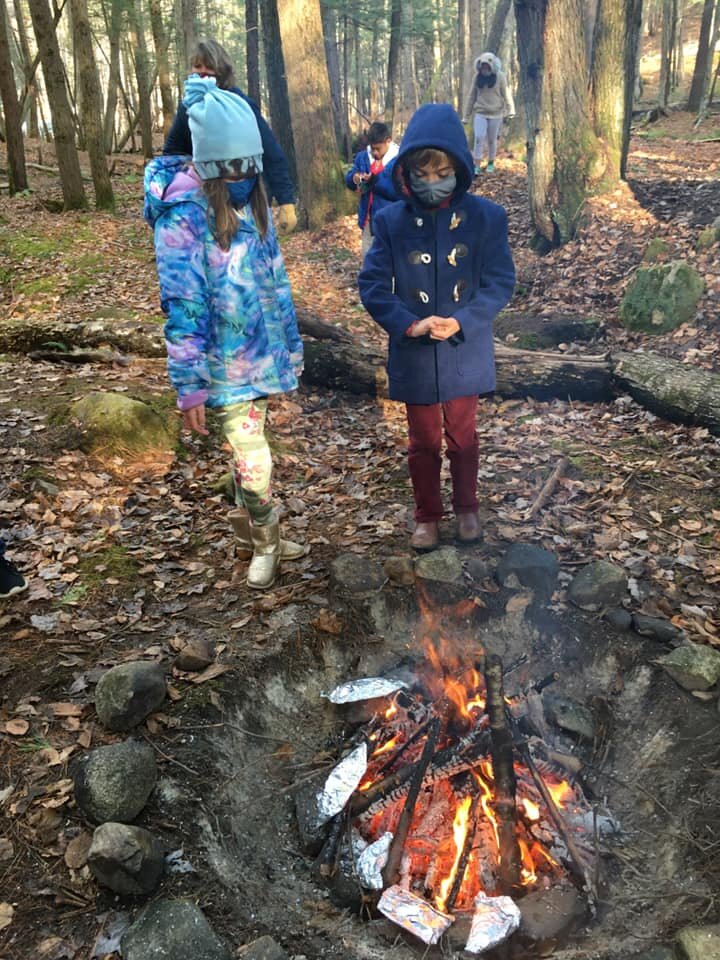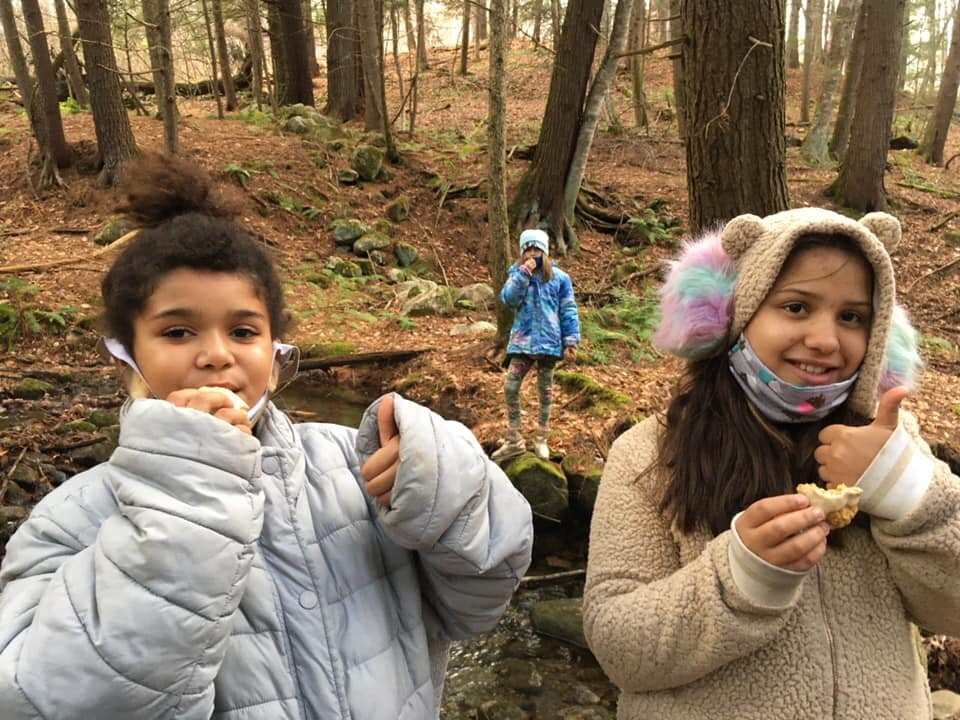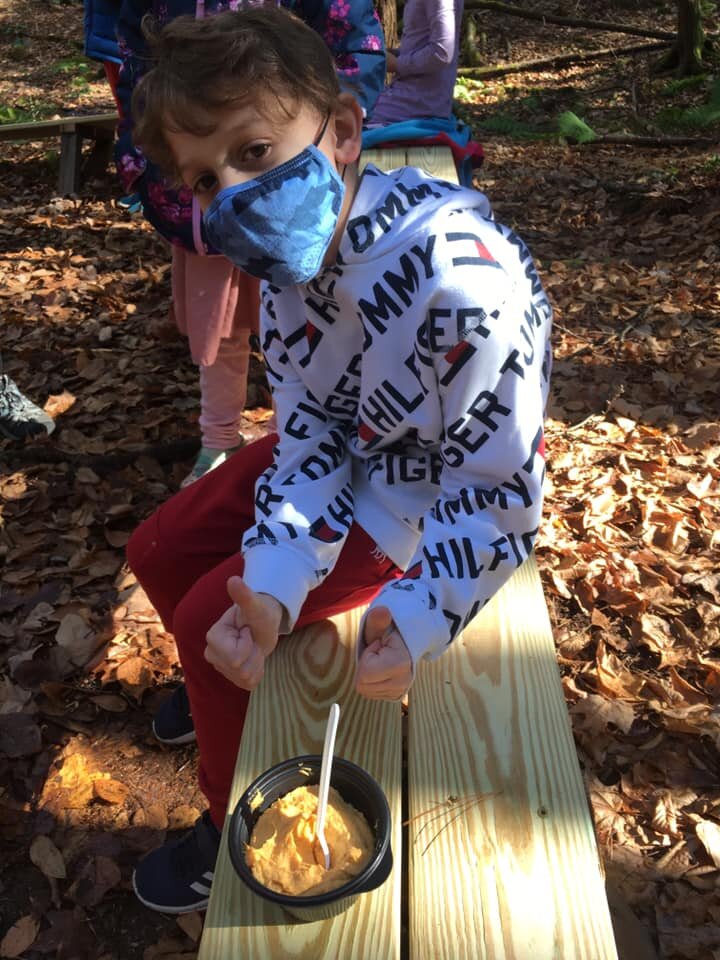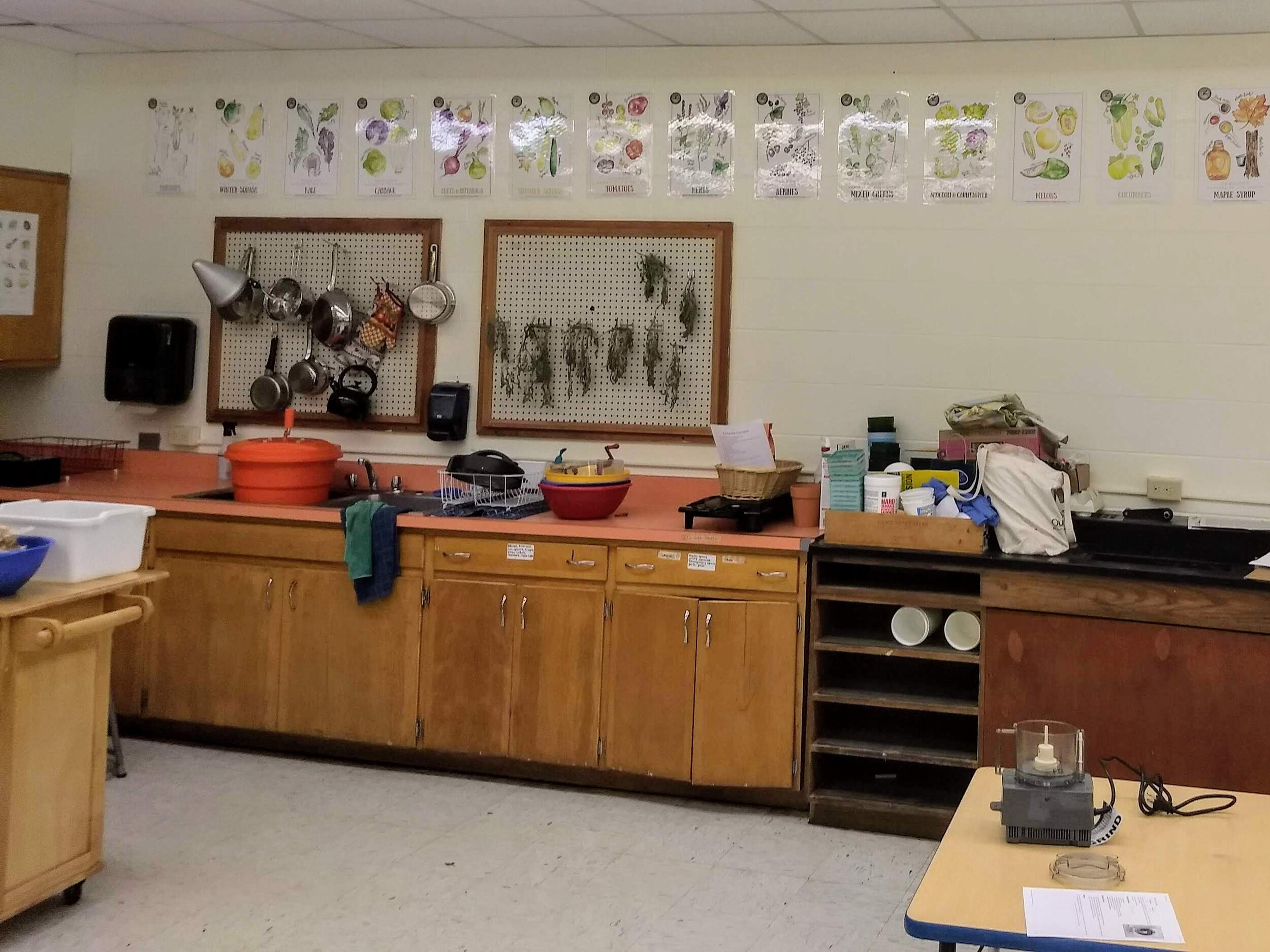Rising 7th and 8th graders had a unique and delicious opportunity to hone their culinary skills over the summer thanks to the leadership of Brattleboro Area Middle School (BAMS) teacher Marissa Fuoroli. During the first week of July, 31 students participated in a Farm to Table-themed camp, offered for free to all BAMS students. They began the week with more straightforward projects like fruit smoothies, homemade pizza, and cinnamon rolls. For the final day of the camp, they worked together to make a 3-course meal featuring a chilled creamy cucumber soup, a main course of ratatouille, and a chocolate chia seed pudding with raspberry sauce for dessert. Guest teachers from Edible Brattleboro and Food Connects supported this culminating feast. These extra hands made making multiple dishes at once much easier for Brattleboro Enrichment Activities for Middle School (BEAMS) program staff.
As preparation for the cooking, students discussed the various ingredients in the recipes and decided which ingredients could be locally grown.
“Has anyone ever grown cucumbers in their garden or seen them growing in the school garden?”
“YES!”
“What about lemons?”
Some students were unsure and thought that perhaps lemons could be grown in Vermont, while others were reasonably confident that lemons needed a warmer climate to thrive. This discussion invited a deeper conversation about the different conditions plants need to grow.
When it came time for cooking, students worked in pairs to peel, chop, and measure the ingredients and follow the recipe. The result was a feast for the whole group, served on the lawn in front of the school.
““At the end of the smoothie-making day, (my son) proudly told me that his smoothie came out very tasty, and he is making smoothies at home for himself now.””
Students left the camp feeling more confident in the kitchen. In fact, Jenny Conathan, mother of rising 7th-grader Liam Conathan-Leach, said, ”In the past, Liam was reluctant to make his own smoothies and always asked me to make them. At the end of the smoothie-making day, he proudly told me that his smoothie came out very tasty, and he is making smoothies at home for himself now.” When asked for his secret smoothie recipe, Liam replied, “I like to keep it very simple, with bananas, strawberries, and orange juice.” Yum!



